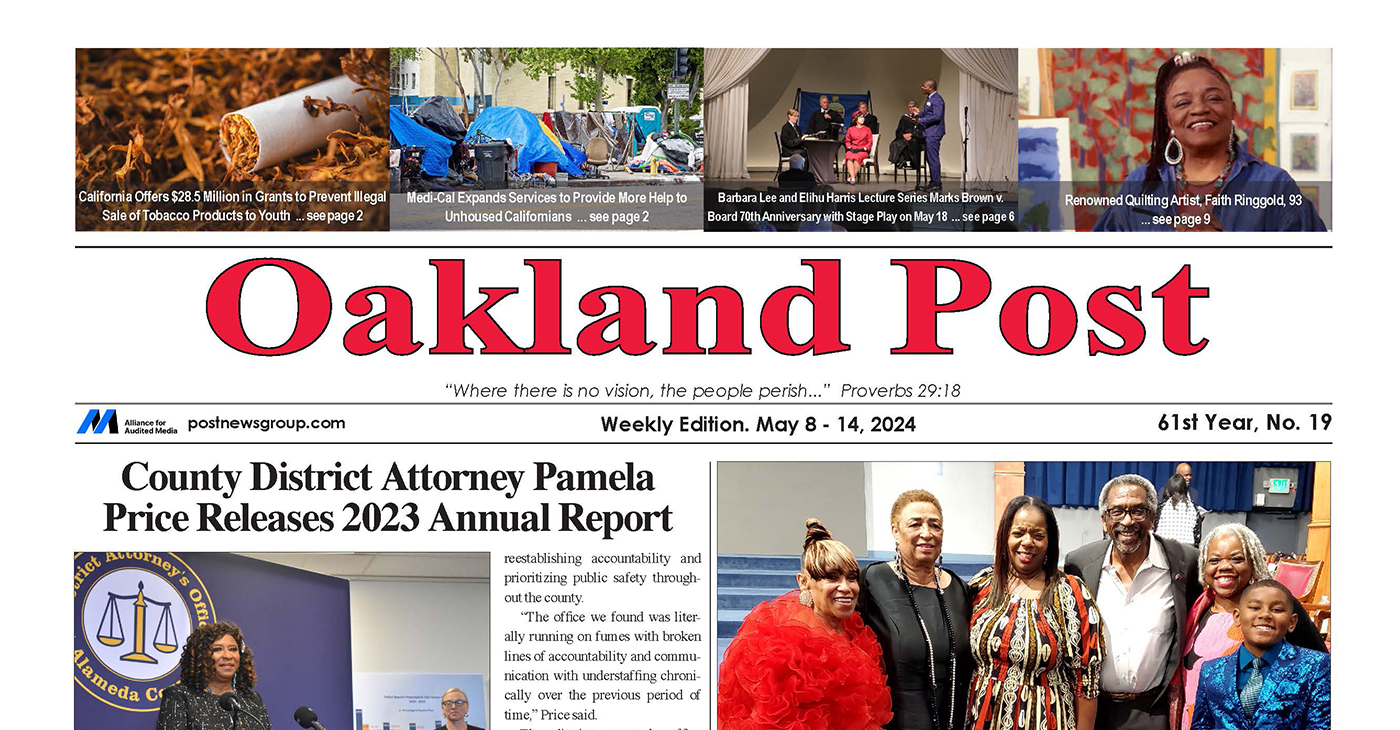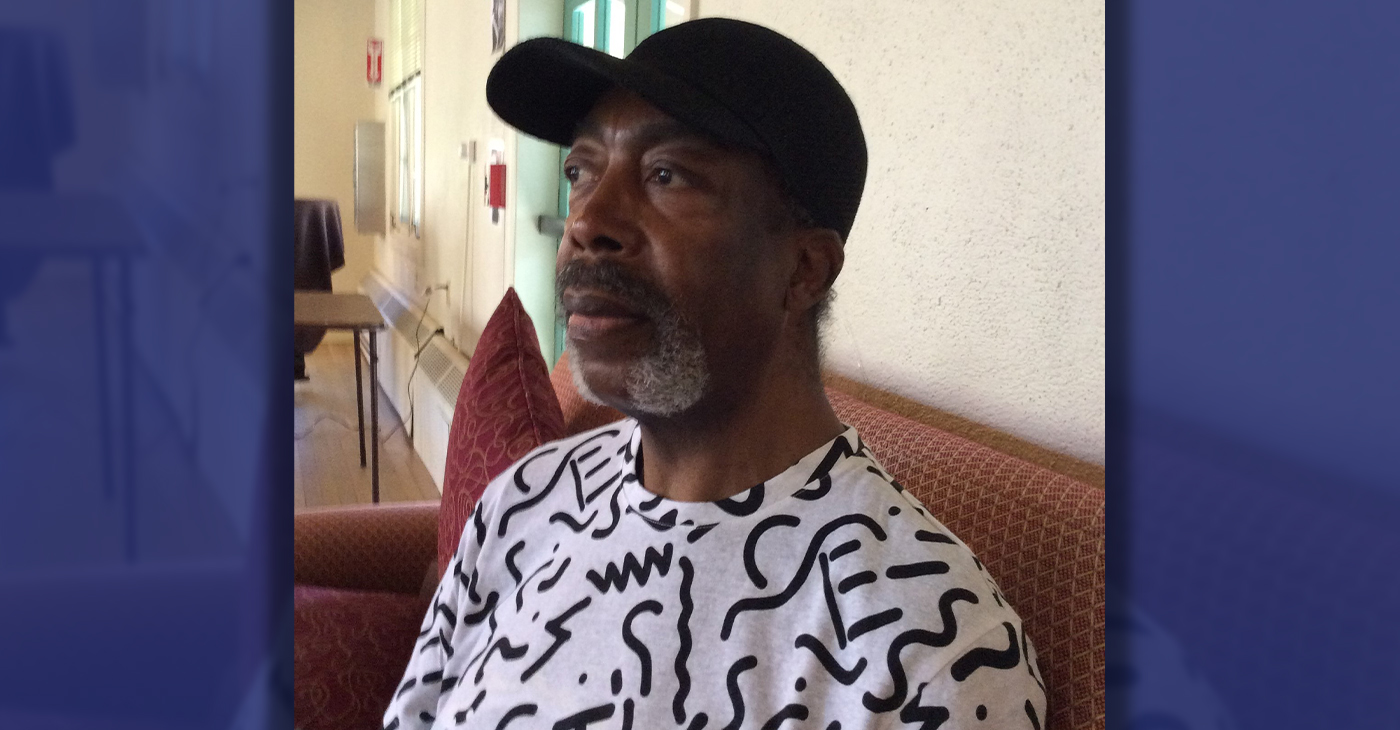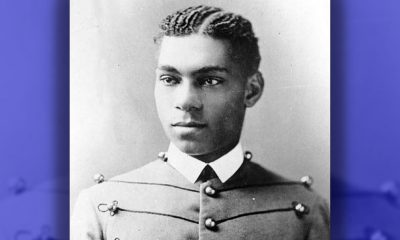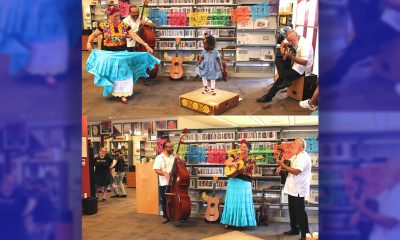Business
The Biz Beat: San Jose Shop Hoists Pinatas to an Art Form
There are few things as joyful as a pinata, and Dulceria Mi Carnaval in San Jose can design them to resemble anything that makes you happy. In a small room adjacent to their shop on East Santa Clara Street, Jose Velasquez and his wife, Cynthia, are surrounded by shelves filled with cardboard templates where the couple has been handcrafting about 15 to 20 pinatas a week since they bought the business in 1991.

By Robert Eliason
San Jose Spotlight
There are few things as joyful as a pinata, and Dulceria Mi Carnaval in San Jose can design them to resemble anything that makes you happy.
In a small room adjacent to their shop on East Santa Clara Street, Jose Velasquez and his wife, Cynthia, are surrounded by shelves filled with cardboard templates where the couple has been handcrafting about 15 to 20 pinatas a week since they bought the business in 1991.
“My sister-in-law started it in 1986,” Cynthia told San Jose Spotlight. “Jose had just gotten out of the army when she decided to sell it, and he decided, ‘Well, I’ll try it out.’ We started making custom pinatas because people were always asking for something we did not have in stock. It was a natural part of what we were doing.”
Jose said people send him photos of what they want. He figures out how to create it.
“I love making them and get really excited when it’s really hard to figure out, like this one,” he told San Jose Spotlight, referring to a four-foot-tall pinata of a margarita glass, rescaling it based on a customer’s tiny cell phone photo.
Looking at the shop’s calendar offers a glimpse at the couple’s creative range: a four-foot-tall cow, an alebrije from the film “Coco,” a 30-inch long crayon, Lightning McQueen, a bee hive, a strawberry, a campfire and a troll head are among the completed or pending tasks for the month.
The couple also makes more substantial pinatas designed for display rather than destruction, including for customers such as the San Jose Earthquakes and the San Francisco Art Institute.
After Jose adds the final details to the framework, the pinata goes to Cynthia for dressing and decorating. Rather than looking like something made to be broken, it’s remarkably solid. Cynthia said customers don’t want them to break easily–they want the pinata to last.
“I’ve had kids scream because they are so happy and excited with the pinata they choose,” she said. “And the parent will come back sometimes and buy another one because their child does not want to break it, so they can have one to hang up in their room or the garage.”
Customer Adam Lopez is only slightly taller than the John Cena-wrestling-themed, star-shaped pinata he chose for his sixth birthday.
“We come here because of the huge variety of themes for all age groups,” said Eduardo Lopez, Adam’s father. “For me, pinatas are a way to celebrate kids and bring the family together.”
Indeed, Cynthia’s favorite pinata to make is a simple design: the number one.
“Customers are so excited to celebrate their child’s first birthday,” she said. “We do them in many different styles. It’s fun to do their first pinata and then watch them come back every year for their next birthday.”
Growing up in Tijuana, Jose remembers having only one pinata as a child: a scarecrow his mother made for his sixth birthday. He said she was overwhelmed by all the kids who showed up from all over the neighborhood–kids he didn’t even know.
“Everyone was very poor, and kids came from all of the houses around us just to line up to try to break it,” Jose said. “It was a big thing.”
Jose said when he makes pinatas, he thinks about the children who are going to having that same kind of experience he had.
“That makes me feel good,” he said. “And I’m happy their parents are getting them a really nice pinata, not some little thing from a supermarket.”
Once a pinata is finished, customers can take them as-is–or they can fill them at the shop from the wide variety of candies imported from Mexico. Dulceria Mi Carnaval also stocks balloons, noisemakers, toys and other party goods. But whether for use or display, the pinatas contain the love and good wishes of the couple who makes them.
“Sometimes I think, ‘Well, I worked on that for so long, and they’re just going to hit it and break it,'” Cynthia said. “But we know the excitement it brings them, a memory that will last a lifetime. We have the photos we take of our work. So, you know, I think we’re okay with it.”
Copyright © 2023 Bay City News, Inc. All rights reserved. Republication, rebroadcast or redistribution without the express written consent of Bay City News, Inc. is prohibited. Bay City News is a 24/7 news service covering the greater Bay Area.
Activism
Oakland Post: Week of May 8 – 14, 2024
The printed Weekly Edition of the Oakland Post: Week of May May 8 – 14, 2024

To enlarge your view of this issue, use the slider, magnifying glass icon or full page icon in the lower right corner of the browser window. ![]()
Bay Area
Mayor Breed Proposes Waiving City Fees for Night Markets, Block Parties, Farmers’ Markets, Other Outdoor Community Events
Mayor London N. Breed introduced legislation on April 26 to encourage and expand outdoor community events. The first will waive City fees for certain events, making them less costly to produce. The second will simplify the health permitting for special event food vendors through the creation of an annual permit. Both pieces of legislation are part of the Mayor’s broader initiative to bring vibrancy and entertainment to San Francisco’s public right of ways and spaces.

Mayor’s Press Office
Mayor London N. Breed introduced legislation on April 26 to encourage and expand outdoor community events.
The first will waive City fees for certain events, making them less costly to produce. The second will simplify the health permitting for special event food vendors through the creation of an annual permit. Both pieces of legislation are part of the Mayor’s broader initiative to bring vibrancy and entertainment to San Francisco’s public right of ways and spaces.
Outdoor community events are integral to San Francisco’s vibrant culture and sense of community. These events include night markets, neighborhood block parties and farmers markets, and bolster the City’s economy by supporting local businesses and attracting tourists eager to experience San Francisco’s unique charm and food scene.
They offer residents, workers and visitors, opportunities to engage with local artists, musicians, and food vendors while enjoying the San Francisco’s stunning outdoor spaces and commercial corridors.
The legislation will allow for more and new community gatherings and for local food vendors to benefit from the City’s revitalization.
“San Francisco is alive when our streets are filled with festivals, markets, and community events,” said Breed. “As a city we can cut fees and streamline rules so our communities can bring joy and excitement into our streets and help revitalize San Francisco.”
Fee Waiver Legislation
The events that can take advantage of the new fee waivers are those that are free and open to the public, occupy three or fewer city blocks, take place between 8 a.m. and 10 p.m., and have the appropriate permitting from the ISCOTT and the Entertainment Commission.
The applicant must be a San Francisco based non-profit, small business, Community Benefit District, Business Improvement District, or a neighborhood or merchant association. Fees eligible for waiver include any application, permit, and inspection/staffing fees from San Francisco Municipal Transportation Agency, Department of Public Health, Fire Department, Entertainment Commission, and Police Department.
Currently, it can cost roughly anywhere between $500-$10,000 to obtain permits for organized events or fairs, depending on its size and scope. Organizations and businesses are limited to a maximum of 12 events in one calendar year for which they can receive these fee waivers.
Food Vendor Streamlining Legislation
The second piece of legislation introduced will help special event food vendors easily participate in multiple events throughout the year with a new, cost-effective annual food permit. Food vendors who participate in multiple events at multiple locations throughout the year will no longer need to obtain a separate permit for each event. Instead, special event food vendors will be able to apply and pay for a single annual permit all at once.
“Many successful food businesses either begin as pop-up vendors or participate in special events to grow their business,” says Katy Tang, Director of the Office of Small Business. “Giving them the option for an annual special event food permit saves them time and money.”
Currently, food vendors are required to get a Temporary Food Facility (TFF) permit from the Department of Public Health (DPH) in order to participate in a special event, among permits from other departments.
Currently, each special event requires a new permit from DPH ranging from $124-$244, depending on the type of food being prepared and sold. Last year, DPH issued over 1,500 individual TFF permits. With the new annual permit, food vendors selling at more than four to six events each year will benefit from hundreds of dollars in savings and time saved from fewer bureaucratic processes.
“This legislation is a step in the right direction to make it easier for food vendors like me to participate in citywide events,” said Dontaye Ball, owner of Gumbo Social. “It saves on time, money and makes it more effective. It also creates a level of equity.”
Bay Area
Faces Around the Bay: Sidney Carey
Sidney Carey was born in Dallas, Texas. He moved with his family to West Oakland as a baby. His sister is deceased; one brother lives in Oakland. Carey was the Choir Director at Trinity Missionary Baptist Church for 18 years.

By Barbara Fluhrer
Sidney Carey was born in Dallas, Texas. He moved with his family to West Oakland as a baby. His sister is deceased; one brother lives in Oakland.
Carey was the Choir Director at Trinity Missionary Baptist Church for 18 years.
He graduated from McClymonds High with a scholarship in cosmetology and was the first African American to complete a nine-month course at the first Black Beauty School in Oakland: Charm Beauty College.
He earned his License, and then attended U.C., earning a secondary teaching credential. With his Instructors License, he went on to teach at Laney College, San Mateo College, Skyline and Universal Beauty College in Pinole, among others.
Carey was the first African American hair stylist at Joseph and I. Magnin department store in Oakland and in San Francisco, where he managed the hair stylist department, Shear Heaven.
In 2009, he quit teaching and was diagnosed with Congestive Heart Failure. He was 60 and “too old for a heart transplant”. His doctors at California Pacific Medical Center (CPMC) went to court and fought successfully for his right to receive a transplant. One day, he received a call from CPMC, “Be here in one hour.” He underwent a transplant with a heart from a 25-year- old man in Vienna, Austria
Two years later, Carey resumed teaching at Laney College, finally retiring in 2012.
Now, he’s slowed down and comfortable in a Senior Residence in Berkeley, but still manages to fit his 6/4” frame in his 2002 Toyota and drive to family gatherings in Oakland and San Leandro and an occasional Four Seasons Arts concert.
He does his own shopping and cooking and uses Para Transit to keep constant doctor appointments while keeping up with anti-rejection meds. He often travels with doctors as a model of a successful heart-transplant plant recipient: 14 years.
Carey says, “I’m blessed” and, to the youth, “Don’t give up on your dreams!”
-

 Community3 weeks ago
Community3 weeks agoFinancial Assistance Bill for Descendants of Enslaved Persons to Help Them Purchase, Own, or Maintain a Home
-

 City Government7 days ago
City Government7 days agoCourt Throws Out Law That Allowed Californians to Build Duplexes, Triplexes and RDUs on Their Properties
-

 Activism2 weeks ago
Activism2 weeks agoOakland Post: Week of April 24 – 30, 2024
-

 Business3 weeks ago
Business3 weeks agoV.P. Kamala Harris: Americans With Criminal Records Will Soon Be Eligible for SBA Loans
-

 Activism4 weeks ago
Activism4 weeks agoOakland Post: Week of April 10 – 16, 2024
-

 Community3 weeks ago
Community3 weeks agoAG Bonta Says Oakland School Leaders Should Comply with State Laws to Avoid ‘Disparate Harm’ When Closing or Merging Schools
-

 Community3 weeks ago
Community3 weeks agoRichmond Nonprofit Helps Ex-Felons Get Back on Their Feet
-

 Community3 weeks ago
Community3 weeks agoOakland WNBA Player to be Inducted Into Hall of Fame




















































